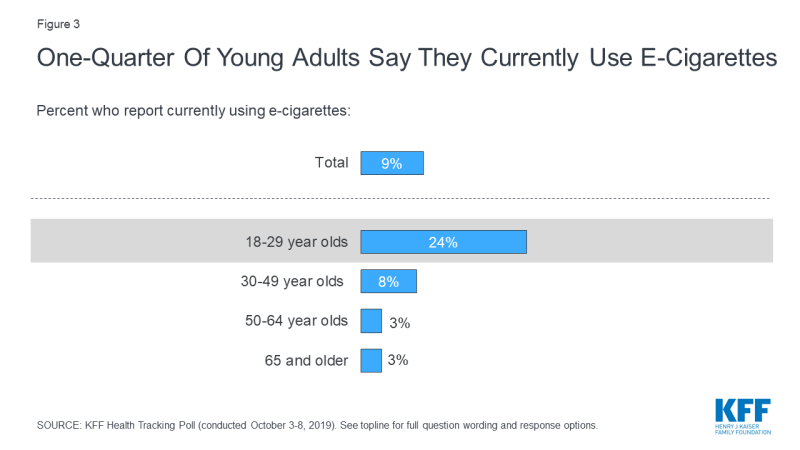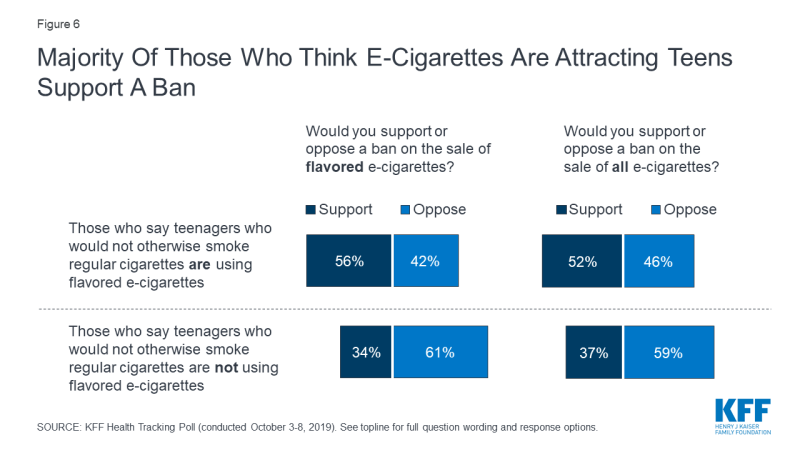Data Note: Public Views on Vaping and E-Cigarettes
Using data from the October 2019 KFF Health Tracking Poll, this data note examines the public’s attitudes about e-cigarettes and vaping. The findings come amid growing concerns about vaping-related lung illnesses and as the Trump administration and a growing number of states are seeking to limit or ban the sale of e-cigarettes in response. Many of these proposals target the sale of flavored e-cigarettes, which have come under fire for their potential appeal to teenagers. The poll finds that most of the public is aware of the reports of vaping-related illnesses, and that a narrow majority supports a ban on flavored e-cigarettes. The poll also finds that younger adults have distinctly different attitudes and beliefs than older adults when it comes to e-cigarettes and vaping. For example, younger adults are more likely than older adults to oppose a ban and are more likely to see e-cigarettes as a safer alternative for cigarette smokers trying to quit.
Vaping and E-Cigarettes
Earlier this month, the Centers for Disease Control and Prevention announced they “are investigating a multistate outbreak of lung injury associated with use of e-cigarette, or vaping, products”1. In response to more than 1,000 reported cases of vaping-related illnesses and the growing use of e-cigarettes and vaping products among teenagers, the Trump Administration along with some state governments, including Massachusetts, Michigan, and Utah have sought to limit or ban the sale of e-cigarettes.2
The poll finds that eight in ten adults have heard a lot (59%) or some (21%) about illnesses related to e-cigarettes and vaping. Awareness about local and state government efforts to limit the sales of e-cigarettes is also high with about seven in ten adults saying they have heard a lot (45%) or some (24%) about such efforts. Fewer adults say they have heard a lot or some about efforts by the Trump administration to limit the sales of e-cigarettes (23% have heard a lot and 25% have heard some).
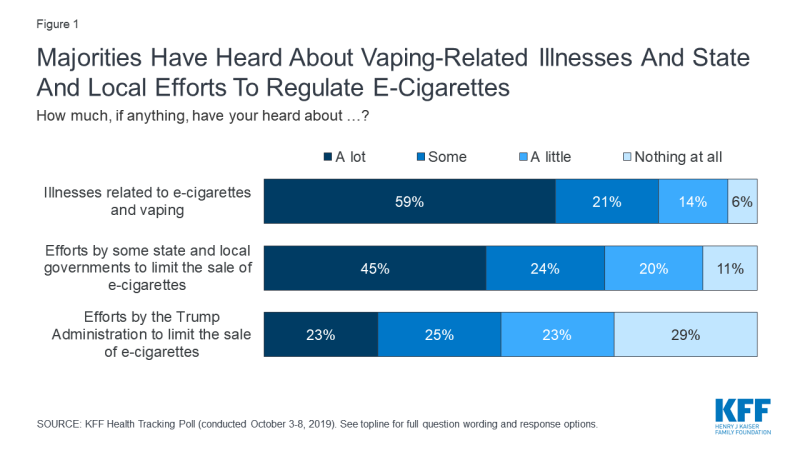
Figure 1: Majorities Have Heard About Vaping-Related Illnesses And State And Local Efforts To Regulate E-Cigarettes
A narrow majority of adults (52%) support a ban on the sale of flavored e-cigarettes while 44% oppose such a ban. The public is more closely divided on a proposed ban on the sale of all e-cigarettes (49% support, 47% oppose). Majorities of Democrats support both types of bans, while independents and Republicans are more divided in their views. Notably, majorities of younger adults ages 18-29 oppose both a ban on flavored e-cigarettes (63%) as well as a ban on all e-cigarettes (62%).
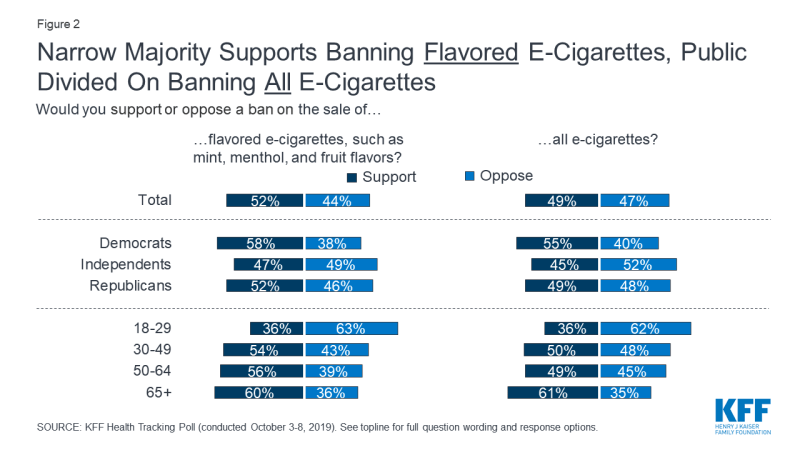
Figure 2: Narrow Majority Supports Banning Flavored E-Cigarettes, Public Divided On Banning All E-Cigarettes
One possible reason younger adults are more likely to oppose a ban on e-cigarettes may be due to their higher rates of usage of these products. Roughly one in four adults ages 18 to 29 (24%) say they currently use e-cigarettes, while reported use is much lower among those ages 30 and older.
The poll also explored the public’s views on the safety of e-cigarettes and their use by teenagers. Amid concerns about flavored vaping products being marketed to teens, eight in ten (81%) Americans think teenagers who would otherwise not smoke cigarettes are using flavored e-cigarettes. Notably, more than three in four across partisanship and age groups think e-cigarettes are being used by teenagers who would otherwise not be smoking. Majorities of both e-cigarette and tobacco product users (76%) and non-users (82%) say that teenagers who wouldn’t otherwise smoke are using flavored e-cigarettes.
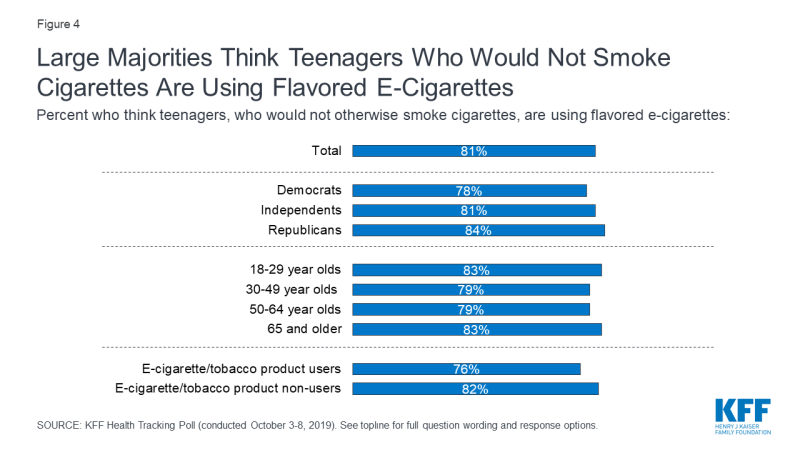
Figure 4: Large Majorities Think Teenagers Who Would Not Smoke Cigarettes Are Using Flavored E-Cigarettes
Last month, the Food and Drug Administration criticized e-cigarette companies for marketing their products as a safer alternative to smoking regular tobacco cigarettes.3 Three in ten (31%) adults think e-cigarettes present a safer alternative for smokers who are trying to quit. However, younger adults ages 18-29 are more likely than their older counterparts to say e-cigarettes are a safer alternative for smokers. About four in ten adults who use e-cigarettes or tobacco products say e-cigarettes are a safer alternative for cigarette smokers who are trying to quit compared to about one in four non-users who say the same.
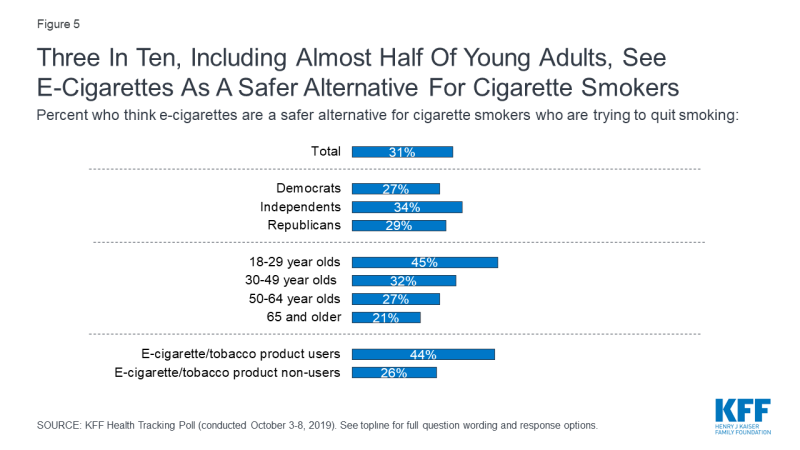
Figure 5: Three In Ten, Including Almost Half Of Young Adults, See E-Cigarettes As A Safer Alternative For Cigarette Smokers
The poll finds that attitudes about teenage use are associated with different levels of support for vaping bans. Slight majorities of adults who think teenagers who would otherwise not smoke are using flavored e-cigarettes support a ban on the sale of flavored e-cigarettes (56%) and a ban on the sale of all e-cigarettes (52%). Among those who do not think e-cigarettes are being used by teenagers who would otherwise not smoke, about a third support a ban on flavored e-cigarettes (34%) and ban on all e-cigarettes (37%).
Views on e-cigarettes as a safer alternative for cigarette smokers who are trying to quit are also associated with different levels of support for e-cigarette bans. Almost eight in ten adults (78%) who see e-cigarettes as a safer alternative oppose a ban on all e-cigarettes while 65% of those who do not see it as safer support a ban. Similarly, 68% of those who see e-cigarettes as a safer alternative for smokers oppose a ban on flavored e-cigarettes while a similar proportion of those who do not think it is safer support a ban (64%).
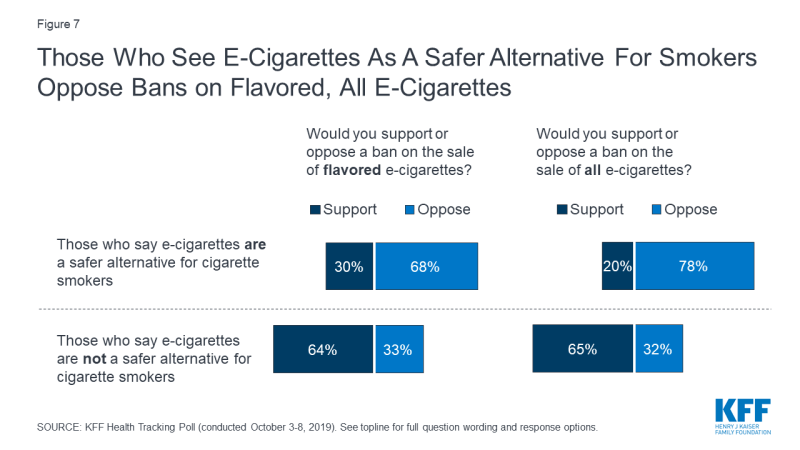
Figure 7: Those Who See E-Cigarettes As A Safer Alternative For Smokers Oppose Bans on Flavored, All E-Cigarettes

